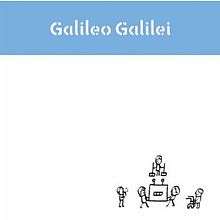Asu e
"Asu e" (明日へ, "To Tomorrow") is a song by Japanese band Galileo Galilei. It was used as the first opening theme song for the anime Mobile Suit Gundam AGE, and was released as their sixth physical single on December 7, 2011.
| "Asu e" | ||||
|---|---|---|---|---|
 | ||||
| Single by Galileo Galilei | ||||
| from the album Portal | ||||
| B-side |
| |||
| Released | November 30, 2011 | |||
| Recorded | 2011 | |||
| Genre | Pop rock, electropop | |||
| Length | 5:16 | |||
| Label | SME Records | |||
| Songwriter(s) | Yuuki Ozaki, Fumito Iwai | |||
| Producer(s) | Galileo Galilei | |||
| Galileo Galilei singles chronology | ||||
| ||||
Background and development
After the release of their first full-length album Parade in February 2011, Galilei Galilei performed their first one-man live concerts. In spring, the band moved into a single house in Sapporo, creating a private studio in their home to create music.[1] The band released a single in June, "Aoi Shiori", which served as the opening theme song for the anime Anohana: The Flower We Saw That Day, and is currently their only single to be certified gold by the RIAJ.[2] In September the band released "Sayonara Frontier", co-composed by band bassist Hitoshi Sakō, and used as the theme song for the TV drama adaptation of Arakawa Under the Bridge.
Writing and production
All members created the music together, with the lyrics and melody added in the final stages. Yuuki Ozaki and Fumito Iwai wrote the melody together, while Ozaki wrote the lyrics by himself. The song featured many more synthesizers, created mostly by Iwai, than previous Galileo Galilei songs. This was his first time creating a song with synthesizers instead of on the guitar. After the release of "Sayonara Frontier", the band took a long time experimenting and recording "Asu e". When the anime opening theme song was discussed, the band picked what they considered the best suited piece of music.[3]
Promotion and release
The song was first announced as the Mobile Suit Gundam AGE opening theme on September 25, 2011.[4] To promote the single, the band gave interviews for magazines such as What's In?, B-Pass, Rockin' On Japan, Pati Pati and Barfout! in November.[5]
A music video was produced, directed by Hideaki Fukui.[6] It was first unveiled on November 19.[7] It depicts the band performing the song in a large, cluttered garage.
Soon after the release of the single, synthesiser player Kazumasa Noguchi was announced as an official member of the band.[8]
Critical reception
CDJournal reviewers gave the single a star for recommendation, praising the richness of the song's arrangement, and felt that "Punipuni Wan-chan" was reminiscent of Daft Punk.[9] Kazuhiro "Scao" Ikeda of EMTG was surprised with the band's sound on "Asu e", calling it a "funky, danceable song" influenced by afro-funk that was refreshing, candid, soulful and deep. he praised the song's "funky cleartone guitar" and "groovy bassline", as well as the chorus' feelings of "rising" and "openness".[10]
Track listing
All lyrics are written by Yuuki Ozaki.
| No. | Title | Music | Length |
|---|---|---|---|
| 1. | "Asu e" | Yuuki Ozaki, Fumito Iwai | 5:16 |
| 2. | "Punipuni Wan-chan" (ぷにぷにわんちゃん, "Squishy Doggy") | Galileo Galilei | 1:48 |
| 3. | "Marble" (マーブル Māburu) | Galileo Galilei | 4:12 |
| Total length: | 11:16 | ||
| No. | Title | Music | Length |
|---|---|---|---|
| 4. | "Asu e (TV Version)" | Ozaki, Iwai | 1:30 |
| Total length: | 12:46 | ||
Chart rankings
| Charts (2011) | Peak position |
|---|---|
| Japan Billboard Japan Hot 100[11] | 23 |
| Japan Oricon weekly singles[12] | 17 |
Sales and certifications
| Chart | Amount |
|---|---|
| Oricon physical sales[13] | 10,000 |
Release history
| Region | Date | Format | Distributing Label | Catalogue codes |
|---|---|---|---|---|
| Japan | November 2, 2011[4] | Ringtone | SME Records | |
| November 30, 2011[14] | Cellphone download | |||
| December 7, 2011[12] | CD, limited edition CD, PC digital download | SECL-1031, SECL-1032 | ||
| December 24, 2011[15] | Rental CD |
References
- "Galileo Galilei" (in Japanese). Recording Industry Association of Japan. January 24, 2012. Retrieved September 25, 2014.
- レコード協会調べ 1月度有料音楽配信認定 [Record Association Investigation: January Digital Music Download Certifications] (in Japanese). Recording Industry Association of Japan. February 28, 2014. Retrieved March 4, 2014.
- "Vol.54:Galileo Galilei" (in Japanese). Roland. 2011. Retrieved September 25, 2014.
- "「機動戦士ガンダム AGE」主題歌決定!" (in Japanese). SME Records. September 25, 2011. Retrieved September 25, 2014.
- 最新メディア露出情報! (in Japanese). SME Records. November 14, 2011. Retrieved September 25, 2014.
- 明日へ (in Japanese). Space Shower. Retrieved September 25, 2014.
- 「明日へ」ビデオクリップ配信スタート! (in Japanese). SME Records. November 19, 2011. Retrieved September 25, 2014.
- "Galileo Galilei、2ndフル・アルバムリリースと野口一雅(Key)の正式加入を発表" [Galileo Galilei, 2nd album release and the announce of Kazumasa Noguchi as an official member!] (in Japanese). Rockin' On. December 14, 2011. Retrieved December 20, 2013.
- "Galileo Galilei / 明日へ [限定]" (in Japanese). CDJournal. Retrieved September 19, 2014.
- Kazuhiro "Scao" Ikeda (December 7, 2011). "レビュー" (in Japanese). EMTG. Retrieved April 16, 2015.
- "Japan Billboard Hot 100". Billboard (in Japanese). December 13, 2011. Retrieved September 4, 2014.
- 「明日へ」 Galileo Galilei (in Japanese). Oricon. Retrieved September 25, 2014.
- "オリコンランキング情報サービス「you大樹」" [Oricon Ranking Information Service 'You Big Tree']. Oricon. Retrieved June 24, 2014.
- "「明日へ」着うたフル(R)配信スタート!期間限定、スペシャルイベント応募特典も!!" (in Japanese). SME Records. November 30, 2011. Retrieved September 25, 2014.
- 明日へ (in Japanese). Tsutaya. Retrieved September 25, 2014.